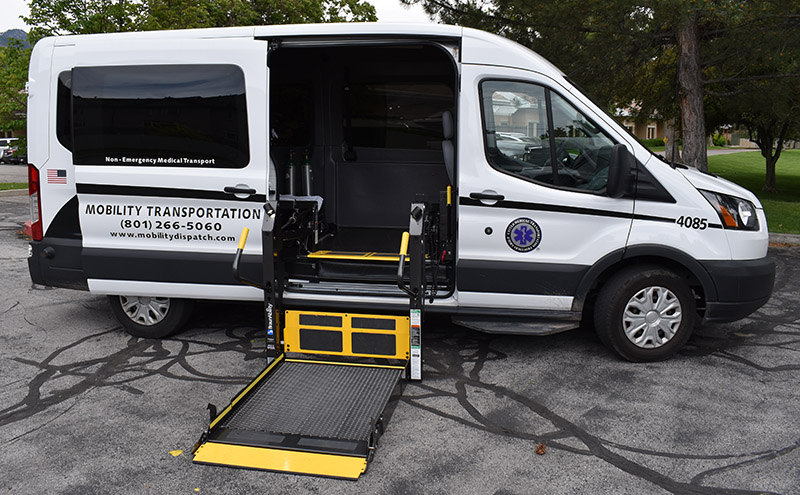Accessible Treatment on Wheels: Explore Medical Transportation Services Near Me
Accessible Treatment on Wheels: Explore Medical Transportation Services Near Me
Blog Article
Available and Affordable Medical Transport Options for Seamless Wellness Support
In the world of healthcare, the availability and affordability of clinical transportation are paramount in making certain people can access the treatment they require when they need it. The ability to effortlessly navigate transport choices can considerably influence a person's capacity to get timely medical attention, follow-up treatment, and total wellness. From non-emergency clinical transportation services to innovative options like telehealth, the landscape of medical transportation is evolving to fulfill the diverse demands of clients. Considering the relevance of this aspect in medical care delivery, discovering the variety of options offered comes to be crucial for attending to voids in access and affordability.
Non-Emergency Medical Transportation Provider

These services are staffed by skilled specialists that prioritize client comfort and safety throughout transit. Vehicle drivers are geared up to manage people with differing clinical demands and ensure that all journeys are worry-free and smooth - Medical Transportation Services Near Me. Additionally, non-emergency medical transport services often use customized lorries that are wheelchair-accessible, making them ideal for a wide variety of individuals with different wheelchair demands
Volunteer Motorist Programs
Volunteer vehicle driver programs are critical in supplying transportation support for individuals seeking non-urgent treatment. These programs depend on the generosity of volunteers that contribute their time and automobiles to assist transportation individuals to and from medical consultations. By making use of volunteer vehicle drivers, companies can offer an affordable remedy for people that may not have accessibility to reputable transport.
Among the crucial benefits of volunteer vehicle driver programs is the individualized care and attention that individuals get. Unlike conventional transportation solutions, volunteer motorists frequently develop a relationship with the individuals they help, creating a helpful and compassionate setting during what can be a demanding time. Furthermore, volunteer driver programs can aid bridge the gap for people residing in country or underserved locations where public transport options may be limited.
Public Transport Options

One of the vital advantages of public transport is its widespread accessibility in country and urban locations alike. This extensive network permits patients from diverse histories to travel to clinical appointments with family member convenience. Additionally, mass transit systems are usually outfitted to fit people with disabilities, offering obtainable traveling options for those with wheelchair challenges.

Ride-Sharing and Transportation Network Business
The advancement of modern-day transportation alternatives for clinical purposes prolongs beyond standard public systems like trains and buses to encompass the ingenious world of ride-sharing and transport network companies. Ride-sharing solutions such as Uber and Lyft have actually transformed the way people travel to medical appointments, providing comfort and versatility to individuals who may not have access to their vehicles or conventional public transportation. These platforms enable customers to request a trip with the touch of a button on their smartphones, providing door-to-door solution that can be specifically valuable for individuals with mobility obstacles or those calling for help.
Transport network business (TNCs) have also played a significant role in linking the space in medical transport solutions. Companies like Veyo and RoundTrip concentrate on non-emergency clinical transportation, dealing with individuals who require a higher degree of help during their trips to medical centers. By partnering with medical care service providers and insurance firms, TNCs ensure that clients can access reliable and timely transport options, ultimately adding to improved wellness end results and individual fulfillment.
Telehealth and Virtual Appointments
Enhancing medical care ease of access and comfort, telehealth and digital assessments have emerged as critical components in modern medical practices, revolutionizing the means people connect with medical care suppliers. This technique not only saves time and reduces transport prices for individuals however also enhances the total effectiveness of healthcare distribution.
In addition, telehealth plays a vital duty in expanding clinical solutions to underserved areas, backwoods, and people with restricted wheelchair. By breaking down geographical barriers and boosting healthcare outreach, telehealth advertises early treatment, connection of treatment, and individual engagement. As innovation remains to advancement, telehealth is positioned to play a progressively considerable role fit the future of health care delivery, cultivating company website enhanced health and wellness outcomes and person contentment.
Final Thought

From non-emergency clinical transportation solutions to ingenious services like telehealth, the landscape of clinical transportation is advancing to fulfill the diverse demands of clients.Non-Emergency Medical Transport Solutions facilitate the secure and timely transport of individuals needing non-urgent medical treatment to and from healthcare centers.The advancement of contemporary transportation options for medical objectives extends past conventional public systems like buses and trains to incorporate the innovative world of ride-sharing and transport network companies.Transport network firms (TNCs) have likewise played a considerable duty in bridging the space in clinical transportation services. Non-Emergency Medical Transport Solutions, Volunteer Driver Programs, Public Transport Options, Ride-Sharing and Transport Network Companies, and Telehealth and Virtual Consultations all play a critical role in resolving transport obstacles to medical care access.
Report this page